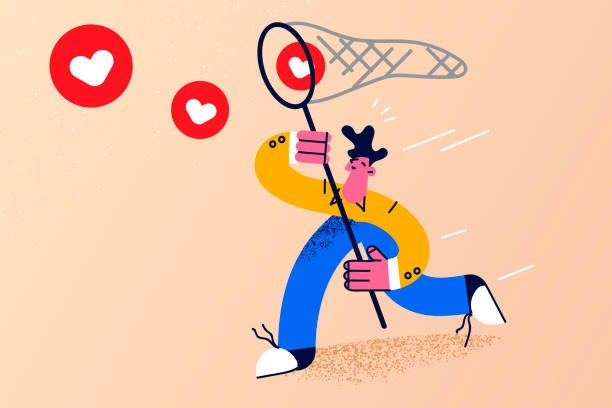
Michael, a businessman in his mid-fifties, watched his teenage grandson Jake scrolling his phone while he sipped his coffee. As he saw his social media page, Jake shared a meme that made him laugh. Michael leaned forward and said, “Jake, do you ever think about your digital reputation?” with a knowing smirk.
Jake asked. “Digital reputation? What’s that?”
Michael chuckled. “It is how people see you online. Back in my day, just a handshake and a good word from a neighbor shaped your reputation. But now it is not the same. Today, it is a tweet, a post, or even an old picture resurfacing at the worst time. Trust me, your future employer or even a college recruiter could be watching.”
Understanding Digital Reputation and Its Impact

Jake set his phone down, intrigued. “So, you’re saying my posts now could affect me later?”
“Absolutely!” Michael nodded. “Recruiters, college admissions officers, and even future business partners will check your online image before making decisions. A strong, positive image can open doors, but a careless mistake can shut them.”
The Risks of a Poor Digital Reputation
Jake frowned. “But I’m just a kid. What could go wrong?”
Michael sighed. “Plenty. Remember your cousin, Sarah? She lost a scholarship because of an old, inappropriate post someone dug up. And a friend of mine didn’t get a job because his past social media rants made the rounds.”
“Whoa,” Jake murmured. “That’s intense.”
“It is,” Michael agreed. “Here are some risks you should be careful for:
- Career Limitations – Employers often screen candidates online. One bad post can cost you an opportunity.
- Educational Consequences – Colleges look at applicants’ digital images to know their character and behavior.
- Cyberbullying and Online Harassment – Negative interactions online can harm both you and your reputation.
- Legal Implications – Posting copyrighted content or making defamatory remarks can lead to legal trouble.”
Teaching Digital Responsibility
Jake tapped his fingers on the table. “So, what do I do to keep my online image clean?”
Michael smiled. “You take control. Here’s how:
- Think Before You Post – Always ask yourself: Would I want my future boss or professor to see this?
- Use Privacy Settings Wisely – Keep personal information private and review security settings on all platforms.
- Engage Positively – Use social media to share achievements, connect with mentors, and contribute to meaningful discussions.
- Learn from Others’ Mistakes – Read up on people who faced backlash for their online activity.”
How Erase Negative Links Can Help?
Jake sighed. “But what if someone posts wrong things about me? Or if I already made a mistake?”
Michael patted his shoulder. “That’s where professionals come in. Erase Negative Links helps people clean up their online reputation. Whether it is an embarrassing old post, a misleading article, or negative search results, they specialize in removing or suppressing unwanted content. It’s like a second chance for your digital reputation.”
Steps to Maintain a Positive Digital Reputation
Jake grinned. “Alright, Grandpa, I’m convinced. What’s my game plan?”
“Simple,” Michael said. “Follow these steps:
- Google Yourself Regularly – Know what’s out there about you and address any harmful content.
- Build a Positive Presence – Start a blog, share your achievements, and be mindful of your interactions.
- Use Strong Privacy Controls – Adjust settings so that only trusted people see your personal information.
- Seek Help When Needed – If you find something damaging, don’t panic. ENL can help restore your reputation.”
The Everlasting Impact of Digital Reputation
Jake furrowed his brows. “But Grandpa, what if someone spreads rumors about me online? What if it is something I didn’t even do?”
Michael nodded seriously. “That’s a real concern for everybody, Jake. Incorrect information spreads fast, and sometimes people are judged based on rumors. That’s why it is important to not only build a positive online image but also to know your rights when it comes to false information. If someone is spreading lies about you, you can file a complain and always seek professional help if needed. And always remember, platforms like ENL exist to help clear misleading content and protect your digital reputation.”
Michael leaned back, thoughtful. “Jake, remember, your digital reputation isn’t just about avoiding trouble, it is about building something meaningful. Imagine if your online presence showed a history of creativity, leadership, and kindness. That’s the kind of reputation that follows you in the best way possible. Every post, every comment, and every interaction contributes to the digital version of you. Make it one you’re proud of.”
Conclusion: Shaping a Secure Digital Future
Jake picked up his phone, now viewing it with new awareness. “So, my digital reputation is just as important as my real-life one, huh?”
Michael nodded. “Exactly. We are living in the digital age, my child, your online presence defines you just as much as your actions in the real world. If you manage it wisely and use resources like ENL when needed, you’ll always be in control of your future.”
As Jake thought about his grandfather’s words, he opened his settings and began adjusting his privacy preferences. One small step for a teenager, one giant leap for his digital reputation.


